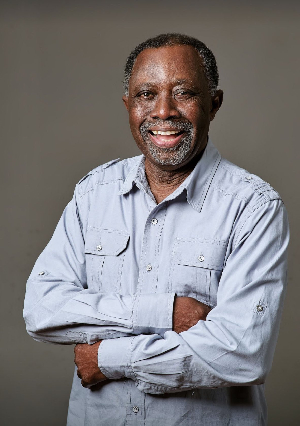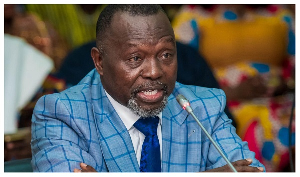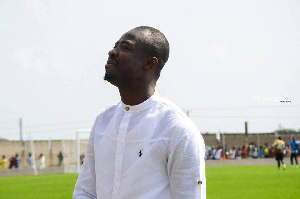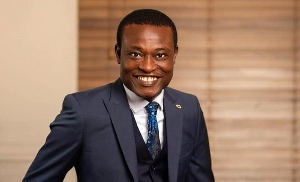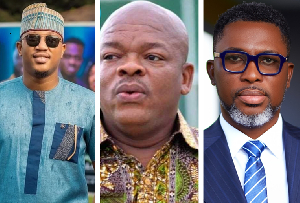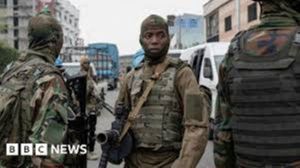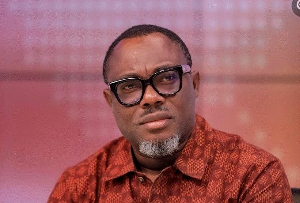On December 7, Ghana will elect a new government—a historic step as we enter the second quarter of the 21st Century, facing both immense challenges and boundless opportunities on our journey.
As we look towards the next twenty-five years, the question looms: What will it take for us to achieve a prosperous and equitable society? The answer lies in an old African proverb that speaks to the three guiding principles we need: courage, sense and insight.
First, we need courage to inspire leadership that will govern selflessly, safeguard our democracy and implement sound policies.
We need to understand the global landscape and the shifting economic dynamics of today’s world, such as the outcomes of the recent US elections and how they will affect Ghana and African countries in general.
Finally, we need insight from our past experiences to shape our future—understanding what policies and strategies have worked and learning from those that have not. As another African proverb that I have often quoted reminds us: If you know the beginning well, the end shall not trouble you.
Over the past few years, through the Compact for Ghana’s Political and Economic Transformation, I have led a broad initiative aimed at analysing Ghana’s political and economic development over the past three decades of the Fourth Republic. The process has yielded valuable insights that will guide us moving forward.
Ghana’s Political Landscape and History of Stability
Our history of peaceful transfers of power between the two dominant political parties has positioned Ghana as a beacon of democracy in Africa. These achievements reflect our commitment to stability and civil engagement.
Yet, despite these democratic credentials and our international acclaim as one of Africa’s success stories, we still face significant challenges. Political polarisation often places party interests over national ones, and we struggle to effectively convert our abundant natural and human resources into the economic and social well-being of our people. Our youth remain disengaged and underemployed while our economy is marred by huge budget deficits, excessive borrowing and currency instability.
A Citizens Driven Approach
From developing technical papers by leading policy institutes to building robust partnerships and engaging citizens, the Ghana Compact process has been citizen-driven and has crystalised a vision for the future we want for our dear nation.
Our consultations culminated in a Citizens’ Convention held in June 2024, where over 500 participants representing key stakeholder groups came together to craft a shared vision. From this emerged a Citizens Declaration of a Social Contract—a blueprint outlining our collective aspirations, responsibilities, and goals for 2050.
For the government, the Social Contract calls for fiscal discipline, a focus on long-term planning rather than changing course every four to eight years and prioritising the well-being of people over politics.
For citizens, it emphasises the need to hold government to account for progress and recommit us to the values and ethics of hard work, service, and patriotism that must define our country.
The Fierce Urgency of Now
Building a Ghana that all of us can be proud of requires the commitment of all Ghanaians, regardless of background, religion, political party affiliation, age, or gender. We must unite around a common roadmap that will allow us to realise our collective vision for our nation and work with fierce urgency. The time to act is now.
We must, therefore, urge the newly elected President to convene a National Convention within the first few months of taking office. This gathering should bring together young leaders, representatives from all political parties, traditional authorities, religious figures, civil society, and stakeholders from the Citizens Convention. The central purpose of the National Convention will be to establish a lasting consensus on the Future We Want and formally endorse the Citizens’ Declaration of a Social Contract.
In short, this convention or “Indaba”, will foster unity after the elections and create the collective ownership of Ghana’s future that is needed to tackle the urgent and pressing economic challenges facing the nation. The objectives of the
National Convention will include:
• Alignment of Policy: Ensuring consistency and alignment of the key policy actions and promises of the political party manifesto of the new government with the goals and targets of the Citizens’ Convention Social Contract Declaration, considering what Tony Blair recently said about a party’s manifesto: it is a guide to winning but rarely prioritise with the rigour necessary for governing.
• Good Governance: Adopting a code of good governance to address the pervasive corruption, inefficient public administration, and inadequate regulatory frameworks—all of which collectively erode public trust and impede effective governance.
• Political Party and Campaign Financing: Reaching consensus on the main elements of robust campaign and political party financing as a precondition to tackling the existential threat of galamsey or illegal mining and related procurement and public financing challenges.
• Decentralisation: Supporting the recommendations of the Constitutional Review Consultative Committee, including decentralisation of functions and resources to the district and community levels.
• Fiscal Discipline: Maximising fiscal flows while maintaining fiscal discipline to facilitate economic transformation by accessing the right mix of external finance from international finance institutions and the private sector.
• Civic Education: Promoting a mindset shift that emphasising patriotism, hard work, integrity and honesty, supported by robust funding for the National Center for Civics Education
•Accountability Mechanism: Establishing an accountability mechanism to ensure that the Social Contract evolves to meet the needs of all Ghanaians, including a public online dashboard to track development progress through 2050, with a key role for citizens and civil society.
A Call to Action
Through this National Convention, we will send a powerful message of unity, resolve, and commitment to a prosperous, peaceful future. It will be a first step in strengthening the culture of dialogue between citizens and the authorities. Because democracy is more than voting every four years. The Ghana Compact will allow citizens to remain engaged and ensure that the next government and subsequent ones stay focused on our collective goals.
The challenges we face may seem daunting, but I believe that if we embrace this vision and prioritise our national interests, we can transform our nation. A brighter future is within our reach, for ourselves and, most importantly, for the generations to come. Together, we can demonstrate that even in turbulent times, democracy is worth the fight—and that a social contract allowing citizens to engage in the future we deserve is worth the effort.
The time for change is now. Let us embrace it with courage, sense and insight.
Opinions of Thursday, 21 November 2024
Columnist: Dr. K.Y. Amoako





